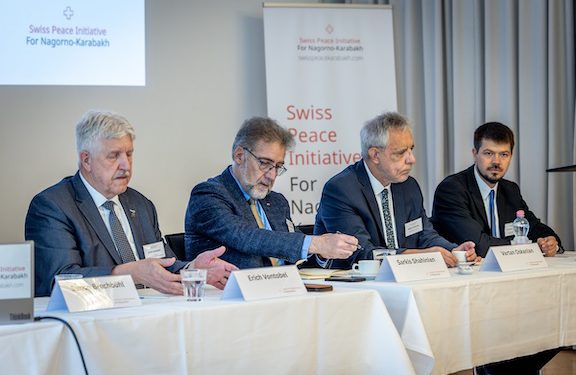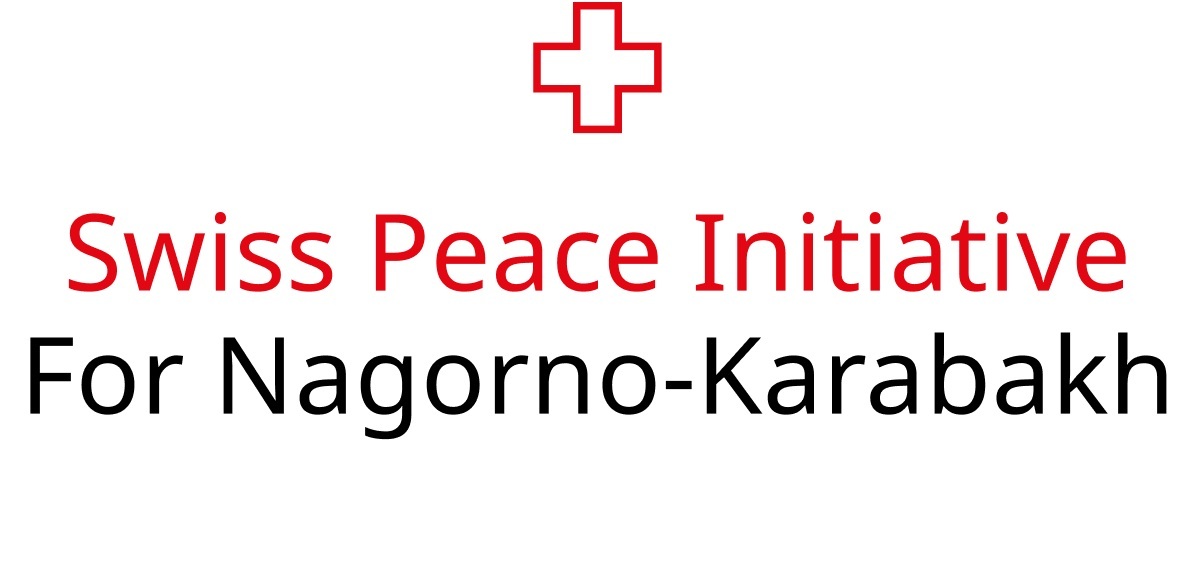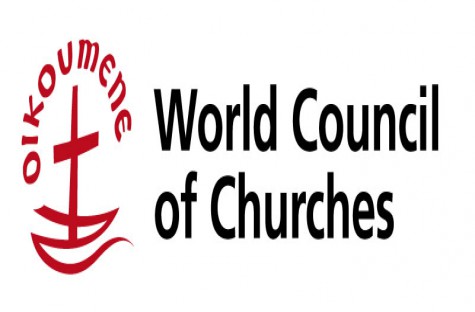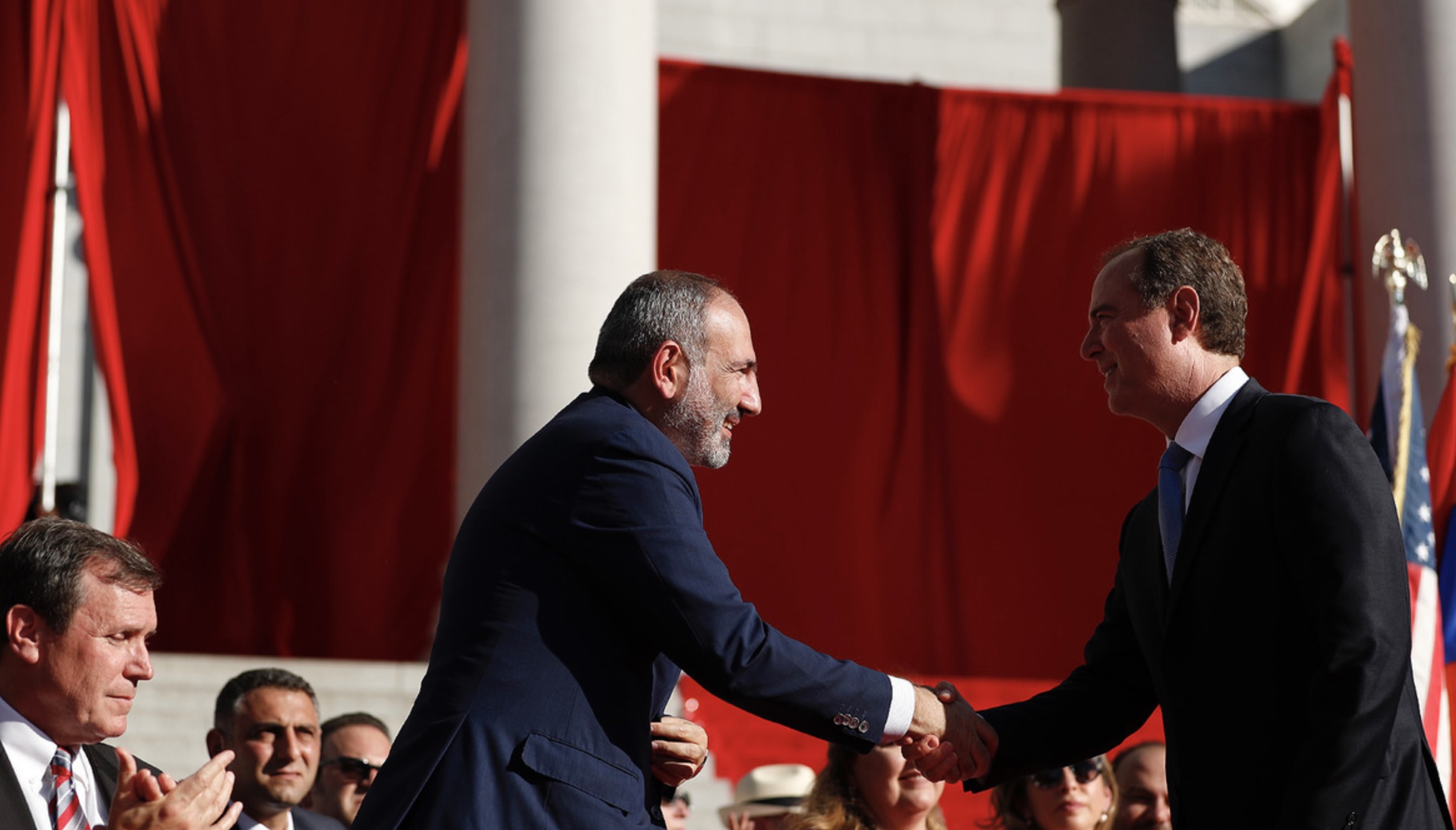
This is the English translation of a Turkish language article that was originally published by AVİM on 26 April 2024. The translation was prepared by AVİM Trainee Öykü Vartürk.
Nicaragua recently filed a complaint against Germany at the International Court of Justice (ICJ) for “political, economic and military support for genocide”, and the first injunction hearing was held at the Court. The protests in favor of Palestine in front of ICJ prior to the hearing have demonstrated the publicity of the issue. Within this context, hearings and decisions on the issue carry significance.
The Nicaraguan delegation asked the Court to declare that Germany's financial support to Israel and export and import of ammunition should be stopped immediately; that Germany's consistent assistance to Israel constitutes a criminal offence under the Genocide Convention and is contrary to international law; that Germany should ensure that weapons and similar items currently in Israeli inventory and supplied by Germany are not used in violation of human rights and international law; and finally, that Germany should resume financial support to the United Nations Relief and Works Agency for Palestine Refugees in the Near East (UNRWA), which had been discontinued. Germany has rigorously denied the accusations.[1]
Nicaragua argued before the Court that Germany has openly supported “genocide” in the “occupied” Palestinian territories and that it -at any rate- is failing to prevent genocide in the context of its international legal and human rights obligations; that it is currently aiding a racist and discriminatory action; and that the Palestinian right to self-determination is not being respected. Nicaragua also stated that Germany has violated jus cogens (peremptory norms), which are considered the basic rules of international law, and due to the urgency of the situation, asked the Court to order the halting of the financial and military support provided by Germany until a final decision is made and thus to issue an injunction.[2]
Noting that one of the most destructive military campaigns witnessed by modern society is taking place in Palestine, the Nicaraguan representative indicated that Germany has remained silent and has even financially and militarily supported, the campaign, which -according to Nicaragua- constitutes an irrefutable violation of international humanitarian law. It should also be emphasized that in his speech, the representative of Nicaragua said that Germany, due to the Holocaust, supports the state of Israel as it conflates Israel with the Jewish community at large, ignoring the fact that Jews with a Holocaust history could empathize with the murdered civilians, and that Germany considers this policy to be in the interests of the state (raison d'état). The policy was characterized by the Nicaraguan representative as a matter of state interest for Germany for historical reasons, as well as the fact that Germany regularly concludes arms import and export agreements with Israel over six-month periods. It is also worth noting that in his speech, the representative pointed out that Israel, in defense industry agreements, promotes its products as “battle-tested” and that it is internationally known that the aforesaid “battlefield” is Palestine.[3]
When South Africa brought a case against Israel at the ICJ for violation of the Genocide Convention, Germany intervened on Israel's behalf. Germany, which has maintained its financial, military, and political support from Israel since the beginning of the Palestinian-Israeli conflict, has argued that this policy is above all based on historical responsibility. Insisting that the welfare of the state of Israel after the Holocaust has occupied an extremely important place in Germany's foreign policy objectives, the German representative tried to create the conviction that Germany had a kind of guarantor duty in the international arena for the existence and security of Israel. The representative argued that, contrary to the Nicaraguan representative's speech, all Hamas acts, in which it killed, injured, and sexually assaulted many civilians, took place on Israeli territory. Besides, the German representative indicated that Nicaragua claimed that these areas were Gaza territory, and this claim thus constituted a direct attack on the existence and territorial independence of the state of Israel. The German representative also said that Hamas, which he referred to as a terrorist organization, is using civilians in the region as human shields in the hopes that their deaths will cause outrage in the international community and is trying to legitimize these terrorist acts.[4]
Stating that Germany has long supported the Palestinian people in the provision of basic necessities and that this is known to be essential from a human rights point of view, the representative of Germany argued that Israel is only acting in self-defense against a terrorist entity and its terrorist acts and that they would like to see a ceasefire between Hamas and Israel, but that this can only be achieved on favorable terms if Hamas releases the captives.[5]
In general, Germany based its defense on the fact that Hamas is a terrorist organization, that other states are disregarding this situation, and that terrorist movements also constitute a violation of human rights. In the case of Nicaragua, Germany argued, all states that consider Israel to be in breach of its obligations are “blind” to these facts.[6] One of the reasons why Germany, which speaks so confidently about human rights and international obligations, has been criticized to such an extent is undoubtedly what happened in Namibia in the past.
Between 1904 and 1908, Germany, the colonial state in what was then called German Southwest Africa, which today has ceased to be a colonial state and has become Namibia as an independent state, carried out a series of interventions that can be characterized as “genocide”. With regard to this massacre, in which thousands of people were brutally murdered through various methods, Germany has found it more appropriate to adopt a policy that avoids history and stands far from the acceptance it has shown in the international arena regarding the Holocaust and its bilateral relations with Israel. Germany, which recognized the Namibian Massacre through international initiatives, signed a joint memorandum of understanding with Namibia, but did not take any concrete reparation initiatives other than financial aid, which are not sufficient and cannot be considered compensation for the relatives of the victims.[7]
Germany's unlimited tolerance for the Israeli state's excessive retaliations, which cannot be explained as merely self-defense, was found to be “shocking” and condemned by the Namibian Presidency. It was also asserted in the official social media account of the Namibian Presidency that Germany should learn from its past, withdraw from intervening in the Israeli-Palestinian conflict in favor of Israel, and ultimately abandon its stance in support of “genocidal acts”.[8]
In conclusion, in the case brought before the International Court of Justice by Nicaragua alleging that Germany has financially and militarily supported the “genocide” in Gaza, Germany's defense and seemingly contradictory position since the beginning of the conflict have not escaped public attention. Although the reason for Germany's strong support for Israel is often attributed to its historical past, Germany appears to persist in not learning from its history.
[1] Verbatim Record of the Public Sitting Held on Monday 8 April 2024, at 10 a.m., at the Peace Palace, President Salam Presiding, in the Case Concerning Alleged Breaches of Certain International Obligations in Respect of the Occupied Palestinian Territory (Nicaragua v. Germany), International Court of Justice, accessed April 26, 2024, https://www.icj-cij.org/sites/default/files/case-related/193/193-20240408-ora-01-00-bi.pdf
[2] International Court of Justice, "Verbatim Record of the Public Sitting Held on Monday 8 April 2024, at 10 a.m. ...".
[3] International Court of Justice, "Verbatim Record of the Public Sitting Held on Monday 8 April 2024, at 10 a.m. ...".
[4] International Court of Justice, "Verbatim Record of the Public Sitting Held on Monday 8 April 2024, at 10 a.m. ...".
[5] International Court of Justice, "Verbatim Record of the Public Sitting Held on Monday 8 April 2024, at 10 a.m. ...".
[6] International Court of Justice, "Verbatim Record of the Public Sitting Held on Monday 8 April 2024, at 10 a.m. ...".
[7] Reinhart Kössler, "Entangled history and politics: Negotiating the past between Namibia and Germany", Journal of Contemporary African Studies, 26(3), 2008: 313–339.
[8] Tafi Mhaka, “Namibia, Gaza and German hypocrisy on genocide”, Al Jazeera, accessed April 26, 2024, https://www.aljazeera.com/opinions/2024/2/20/namibia-gaza-and-german-hypocrisy-on-genocide
© 2009-2025 Center for Eurasian Studies (AVİM) All Rights Reserved
No comments yet.
-
 GERMANY'S CONTRADICTORY STANCE ON THE GAZA ISSUE
GERMANY'S CONTRADICTORY STANCE ON THE GAZA ISSUE
Selenay Erva YALÇIN 09.07.2024 -
 SWITZERLAND'S BIASED STANCE AND ITS HARMFUL EFFECTS ON PEACE EFFORTS - 2
SWITZERLAND'S BIASED STANCE AND ITS HARMFUL EFFECTS ON PEACE EFFORTS - 2
Selenay Erva YALÇIN 02.07.2025 -
 SWITZERLAND'S BIASED STANCE AND ITS HARMFUL EFFECTS ON PEACE EFFORTS
SWITZERLAND'S BIASED STANCE AND ITS HARMFUL EFFECTS ON PEACE EFFORTS
Selenay Erva YALÇIN 26.06.2025 -
 THE EU'S REFUGEE POLICY IN LIGHT OF VON DER LEYEN'S VISIT TO EGYPT AND THE CASE OF RWANDA
THE EU'S REFUGEE POLICY IN LIGHT OF VON DER LEYEN'S VISIT TO EGYPT AND THE CASE OF RWANDA
Selenay Erva YALÇIN 10.07.2024 -
 THE ORGANIZATION OF TURKIC STATES AND THE CLAIMS OF TURANISM AND PANTURKISM
THE ORGANIZATION OF TURKIC STATES AND THE CLAIMS OF TURANISM AND PANTURKISM
Selenay Erva YALÇIN 19.12.2024
-
 TURKISH-ARMENIAN CONTROVERSY CONTINUES TO BE INSTRUMENTAL FOR THE CHURCH TO INCITE RELIGIOUS AND ETHNIC ANIMOSITY
TURKISH-ARMENIAN CONTROVERSY CONTINUES TO BE INSTRUMENTAL FOR THE CHURCH TO INCITE RELIGIOUS AND ETHNIC ANIMOSITY
Mehmet Oğuzhan TULUN 21.06.2015 -
THE DRAFT RESOLUTION IN THE US REGARDING THE CHURCHES AND PROPERTIES IN TURKEY AND THE TURKISH REPUBLIC OF NORTHERN CYPRUS
Ömer Engin LÜTEM 30.06.2014 -
 AMERICA ON THE WANE: THE HOUSE OF REPRESENTATIVES DISGRACES ITSELF AND LOSES CREDIBILITY
AMERICA ON THE WANE: THE HOUSE OF REPRESENTATIVES DISGRACES ITSELF AND LOSES CREDIBILITY
AVİM 26.11.2019 -
FRANCE’S NEW PRESIDENT AND THE ARMENIANS
Ömer Engin LÜTEM 07.05.2012 -
 FRANCE'S FREEDOM RECORD ACCORDING TO THE US COMMISSION ON INTERNATIONAL RELIGIOUS FREEDOM
FRANCE'S FREEDOM RECORD ACCORDING TO THE US COMMISSION ON INTERNATIONAL RELIGIOUS FREEDOM
Hazel ÇAĞAN ELBİR 17.08.2023
-
25.01.2016
THE ARMENIAN QUESTION - BASIC KNOWLEDGE AND DOCUMENTATION -
12.06.2024
THE TRUTH WILL OUT -
27.03.2023
RADİKAL ERMENİ UNSURLARCA GERÇEKLEŞTİRİLEN MEZALİMLER VE VANDALİZM -
17.03.2023
PATRIOTISM PERVERTED -
23.02.2023
MEN ARE LIKE THAT -
03.02.2023
BAKÜ-TİFLİS-CEYHAN BORU HATTININ YAŞANAN TARİHİ -
16.12.2022
INTERNATIONAL SCHOLARS ON THE EVENTS OF 1915 -
07.12.2022
FAKE PHOTOS AND THE ARMENIAN PROPAGANDA -
07.12.2022
ERMENİ PROPAGANDASI VE SAHTE RESİMLER -
01.01.2022
A Letter From Japan - Strategically Mum: The Silence of the Armenians -
01.01.2022
Japonya'dan Bir Mektup - Stratejik Suskunluk: Ermenilerin Sessizliği -
03.06.2020
Anastas Mikoyan: Confessions of an Armenian Bolshevik -
08.04.2020
Sovyet Sonrası Ukrayna’da Devlet, Toplum ve Siyaset - Değişen Dinamikler, Dönüşen Kimlikler -
12.06.2018
Ermeni Sorunuyla İlgili İngiliz Belgeleri (1912-1923) - British Documents on Armenian Question (1912-1923) -
02.12.2016
Turkish-Russian Academics: A Historical Study on the Caucasus -
01.07.2016
Gürcistan'daki Müslüman Topluluklar: Azınlık Hakları, Kimlik, Siyaset -
10.03.2016
Armenian Diaspora: Diaspora, State and the Imagination of the Republic of Armenia -
24.01.2016
ERMENİ SORUNU - TEMEL BİLGİ VE BELGELER (2. BASKI)
-
AVİM Conference Hall 24.01.2023
CONFERENCE TITLED “HUNGARY’S PERSPECTIVES ON THE TURKIC WORLD"









